Steamrolling a policy of chaos and conflict
In the week of 16 July 2018 the Pestalozzi Trust received information that the Department of Basic Education (DBE) planned to push through the new policy on home education without consulting the homeschooling movement. Although the consultation process cannot be viewed as meaningful by any stretch of imagination, the DBE attempts to create a perception that an extensive consultation process was followed.
A flawed consultation process
In 2014 and 2015 the DBE invited representatives of the homeschooling movement to attend meetings on a new home education policy. Representatives experienced the meetings as positive due to recommendations which the DBE made in its 2nd Draft Discussion Document in 2015. This document proposed a way forward through using a consultative relationship based on mutual trust and independent research. The policy on home education would be based on a final Discussion Document that would only be finalised after a process of public participation.
After these meetings, some representatives of the homeschooling movement were invited to working group meetings. However, it quickly became abundantly clear that the DBE had no intention to continue to engage in a consultative relationship, but merely invited representatives to provide legitimacy to a draft a policy with pre-determined content, in which the input of homeschoolers were totally ignored. No independent research was done and there was no public participation on a final discussion document before policy writing started. Since homeschooling representatives did not want to provide legitimacy to a flawed participation process, they withdrew as participants, but remained available for consultation on demand.
Avalanche of comments to the draft policy
After no communication for almost two years, the DBE released a draft policy for public comment in November 2017, without any prior notice. Whereas the main benefit of home education is that it can be customised to the individual needs of each child, this draft policy transforms home education into a one size fits all public school at home programme. Whereas home education is one of the few affordable options to provide quality education as an alternative to the failing public schools, this draft policy can make home education unaffordable by requiring parents to pay for an army of competent assessors and invigilators to monitor their home education.
Only 21 days were given to respond to this policy, while concurrently having to comment to BELA Bill children were busy with exams. Despite the DBE releasing the document for a short and inconvenient period, the DBE received more than 700 letters with comments. In November 2017 during a meeting at parliament the DBE Director General, Mathanzima Mweli referred to this reaction on the Bill as ‘the word avalanche would not describe’.
The policy of chaos and conflict
At the start of the next year, the Pestalozzi Trust enquiried on the progress of the policy and offered to assist in evaluating comments. After multiple attempts the Trust was merely informed that all comments were analysed “in a fair, just and a credible manner” (in a period of about 2 months) and will be submitted to the Council for Education Ministers (CEM) for final promulgation.
A policy is supposed to provide guidance to government officials on how to implement a law. The draft home education policy refers to the Basic Education Law Amendment (BELA) Bill that has not even been submitted to parliament yet. Therefore, this policy provides guidance on how to implement a law that does not exist yet. This is a recipe for chaos. Furthermore, a policy not taking into account the comments of the homeschooling movement will cause a significant increase in conflict between homeschooling families and education officials.
To avoid the conflict and chaos that this policy can create, the Pestalozzi Trust requested a copy of the updated policy and an opportunity to engage with CEM. It was important to confirm that avalanche of comments were taken into account in the updated policy. Unfortunately multiple requests for the updated policy fell on deaf ears. When the Pestalozzi Trust received information that CEM would discuss the policy in the week of 16 July (the week of Mandela day) it had no choice but to issue a Red Alert to homeschoolers. Parents were requested to contact the DBE and request a copy of the policy and an opportunity to engage with CEM. The reaction of the homeschooling movement was amazing. In the week of 16 July, the DBE was flooded by an estimated 600 – 1000 letters and telephone calls. The reaction of the DBE was predictable; nothing. Some parents even received notifications that their emails were deleted without being read.
DBE sets example of not treating parents with dignity
On 30 July the DBE issued a media release, confirming that the policy was approved by CEM. To add insult to injury, the DBE described the concerned parents that contacted the office of the minister as spammers. Although a campaign of similar magnitude in percentage terms persuaded the City of Cape Town to retract a water levy earlier this year, the DBE justified the ignoring of concerned parents by describing them as a “small group”, as if there is a “large group” of homeschooling parents that support the policy of the DBE. It is unfortunate that the politicians responsible for the education of the next generation of South Africans set an example of not treating citizens with dignity by ignoring and insulting parents.
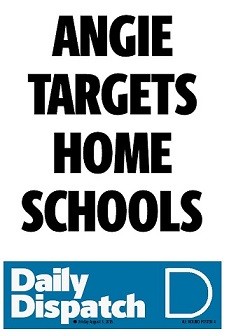
Events
Legal & Research
Centres
Homeschool ABC
Support
Curriculums
Cambridge & International ...
As of 1 January 2025, Macmillan Education is the sole agent ...
Impaq: Homeschool & Online ...
Impaq: The leading homeschooling curriculum provider in South ...
Ginini Training Institute
Ginini Academy is an EdTech home education content provider ...
Has no content to show!



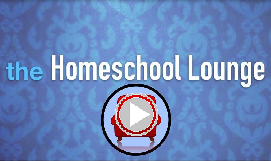





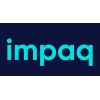
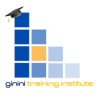

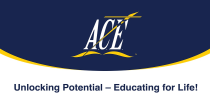

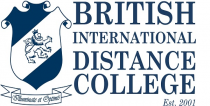

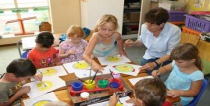





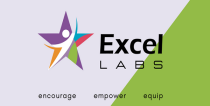



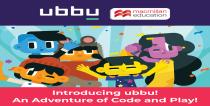





Comments 3
I found a CAPS social studies learners book for grade 6 in my stash. Module 7 is titled democracy and citizenship. The second unit is titled The Constitution and parliament. In the first paragraph it reads " The consitution is the highest law in the country, and even the goverment has to obey it. " Hah! Reading this article, it is clear that the DBE do not follow their own teachings, because by steamrolling this law, they are putting themselves above the constitutional law. That is what you call a flawed democracy. To their credit I learned that term from them, out of their book, while teaching my children. I just love homeschooling...
I posted a comment previously , stating that I learned the term "flawed democracy " from a grade 6 learners book that is part of caps. I forgot I actually learned that term from supplemental videos we watched on youtube, after reading out of the grade 6 social studies book on the topic of citizenship and democracy. So, I cannot even credit the DBE with that. My apologies.
Another typical example of an area that the government abuses and uses to exercise their control over the country. Inconsiderate and wicked with one agenda - to fill their own back pockets and to control society and force robotic thinking and acting in our children to operate an economic world controlled by the deep state.